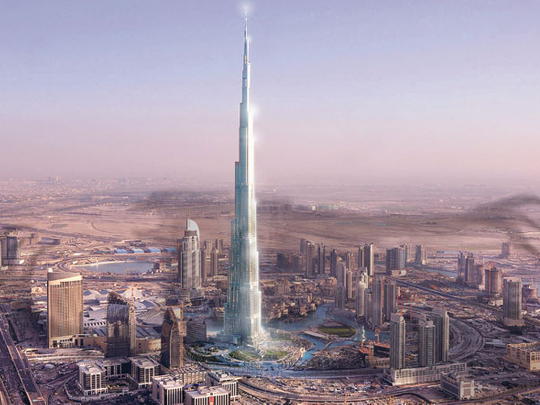
The flood of emotional criticism of Dubai continues. Even though Dubai government has its refinancing package in place, and the process of restructuring the troubled companies has started, the emirate still attracts more than its normal share of bad comment.
The challenge facing Dubai is how to respond. It needs to rebuild its international reputation by releasing a steady flow of solid facts, and allowing anyone who is interested to make up their own minds.
Many people want to know what is happening: bankers and financiers, journalists and tourists, even people living in the city going about their normal lives. Everyone wants to know what is going on in Dubai, and they need to be able to find the necessary facts so that they can make their own judgements.
Over the next few months, and for years in the future, they will come to see that the emirate is succeeding, and that Dubai's plans to build itself into a global and regional business hub are still on track. That is not to say that everything in Dubai will succeed. Certainly there will be more bad news, but this is normal and is part of what happens in any large business community.
Dubai's critics have concentrated on two major areas. Recently one focus has been to say that the debt burden in the emirate is excessive. Although the information coming out of the companies and the government was much too little at the start, the present outlook is that the unnecessary panic in the business community and global financial world has receded to a much more normal level of concern.
Nothing succeeds like success
But even this should be dispelled by clear plans and transparent information. Of course, nothing quite succeeds like success, so once the emirate has weathered the worst of the recession, and normal prosperity starts to return, most of the financial concern will fade away.
But the second strand of criticism will remain. This has sought to look at a more fundamental issue: that in the rush to development Dubai has somehow lost its soul, and become a place without values.
This view was summed up most recently this week in the notorious edition of the Doha Debates on the motion that "Dubai is a bad idea". Sir Simon Jenkins, a respected commentator on British issues, suggested that Dubai was doomed from the moment its ruler conceived an over-ambitious plan to build an "anything goes" culture of capitalism.
"All over the world lie the wreckages of cities that expanded too fast. Dubai failed through lack of government control. Uncontrolled capitalism ends in tears and causes huge human hardship," said Jenkins.
These comments would be understandable if Dubai had failed, but it has not. The emirate is coping with a recession much like anywhere else in the world, but it is still very much in business.
The downturn is real, but so is the continuing business. What offers very important hope for a quick upturn is that the government has used the last 10 years of economic boom to build a substantial modern infrastructure, so Dubai and the UAE will remain an important economic centre for the Gulf and entire Middle East.
By making such sweeping judgments in saying that "Dubai has failed", Jenkins missed the point. His simple conclusion that the city expanded too fast and has ended in tears, does not allow room for a more interesting debate on how Dubai can promote the structures of civil society that would allow individuals to contribute to the society that they live in, while working to seek prosperity and progress for their families.
This is the kind of line that Mishal Kanoo, Chairman of the Kanoo Group, was speaking of in the Doha Debate when he said that Dubai was where every Arab wanted to be, and that the city was a beacon of prosperity for international companies and "a viable alternative to nationalism and extremism". He was tackling the widespread impression that Arab states can only be extreme or nationalistic.
The UAE has led the way as a Gulf state looking for a third way, based on tolerance and international standards. The UAE as a whole, of which Dubai is an integral part, has worked hard to stand up for liberal values.
While this may be surprising to many who do not know the region, the basis of the country's success for over a century is being able to attract a wide variety of people to live and work in the emirates that became the UAE. Their present economic success would not have been possible without this core value.
There is a valid concern about how the UAE's Arab and national identity will be fostered in this new world, and there is an active debate between the country's conservative and liberal thinkers on how to handle this vital issue.
There is also a vigorous continuing debate on how the institutions of civil society can be promoted and take part in the debate with people and government on how to take the UAE forward.
These issues are the ones that will survive the current recession, and they will make for a much more interesting debate than the simplistic notion that an emirate is a "bad idea".
Do you agree or disagree? Share your thoughts by clicking on the 'post a comment' link below








